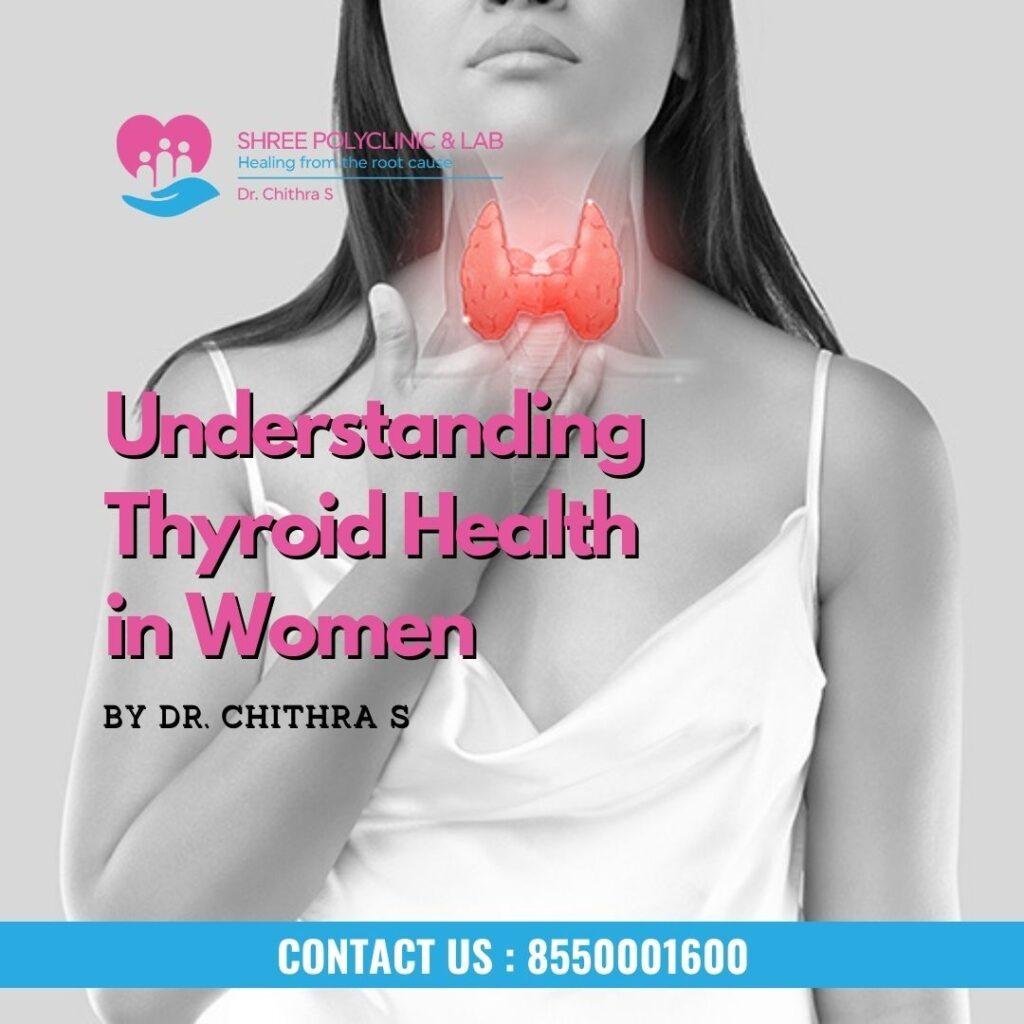The thyroid gland, a small butterfly-shaped organ located at the base of the neck, plays a vital role in regulating the body’s metabolism. Despite its size, this gland has a significant impact on overall health, and when it malfunctions, it can lead to a range of issues, especially for women. Thyroid disorders are more common in women than in men, making it essential to understand their symptoms, causes, and when to seek medical advice.
The Role of the Thyroid Gland
The thyroid gland produces hormones, primarily thyroxine (T4) and triiodothyronine (T3), which regulate metabolism, energy levels, and even mood. It also influences heart rate, body temperature, and digestion. Proper functioning of the thyroid is crucial for maintaining hormonal balance, especially in women, as it interacts closely with reproductive health.
Common Thyroid Disorders in Women
- Hypothyroidism (Underactive Thyroid):
- Occurs when the thyroid gland doesn’t produce enough hormones.
- Common causes include Hashimoto’s thyroiditis (an autoimmune condition) and iodine deficiency.
- Hyperthyroidism (Overactive Thyroid):
- Results from excessive hormone production.
- Often caused by Graves’ disease, another autoimmune condition.
- Thyroid Nodules:
- Lumps that form on the thyroid gland.
- While most are benign, some may indicate cancer or require further investigation.
- Postpartum Thyroiditis:
- A temporary condition that can occur after childbirth.
- Often resolves on its own but may require monitoring.
Key Symptoms of Thyroid Disorders
Recognizing the symptoms of thyroid dysfunction is crucial for early diagnosis and treatment. Here are common signs to watch for:
Symptoms of Hypothyroidism:
- Fatigue and low energy levels
- Weight gain despite no change in diet
- Hair thinning or hair loss
- Dry skin and brittle nails
- Sensitivity to cold
- Irregular or heavy menstrual periods
- Depression or mood swings
Symptoms of Hyperthyroidism:
- Unexplained weight loss
- Rapid heartbeat or palpitations
- Increased sweating and heat sensitivity
- Anxiety or irritability
- Difficulty sleeping
- Tremors in hands
- Light or missed periods
Risk Factors for Thyroid Disorders
Women are more susceptible to thyroid issues due to hormonal fluctuations during puberty, pregnancy, and menopause. Additional risk factors include:
- Family history of thyroid disorders
- Autoimmune conditions like type 1 diabetes or rheumatoid arthritis
- History of radiation exposure to the neck or chest
When to Get Checked
If you notice any of the above symptoms or have risk factors, it’s important to consult a healthcare provider. Routine screenings may include:
- TSH Test (Thyroid-Stimulating Hormone): A primary test to evaluate thyroid function.
- T3 and T4 Tests: To measure hormone levels directly.
- Ultrasound or Biopsy: For evaluating nodules or abnormal growths.
Women planning pregnancy or experiencing fertility issues should also have their thyroid levels checked, as imbalances can affect conception and fetal development.
Managing Thyroid Health
- Dietary Adjustments: Include iodine-rich foods, selenium, and zinc in your diet while avoiding excessive soy or processed foods.
- Regular Exercise: Helps regulate metabolism and maintain overall well-being.
- Medication: Conditions like hypothyroidism and hyperthyroidism often require medication to restore hormonal balance.
- Stress Management: Chronic stress can worsen thyroid conditions, so practice mindfulness, yoga, or relaxation techniques.
Conclusion
Understanding thyroid health is crucial for women, as it directly impacts physical and emotional well-being. By recognizing symptoms early and seeking appropriate medical care, women can effectively manage thyroid disorders and maintain a healthy lifestyle. If you suspect thyroid issues or are at risk, don’t hesitate to consult a healthcare provider for timely diagnosis and treatment.
Remember: Regular checkups and being proactive about your health can make all the difference. Your thyroid may be small, but its impact on your life is immense!

